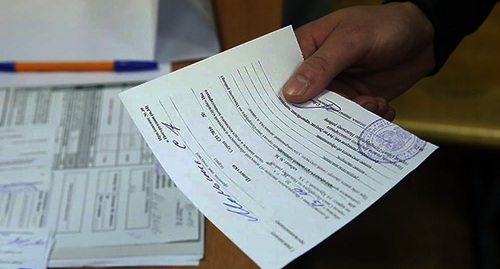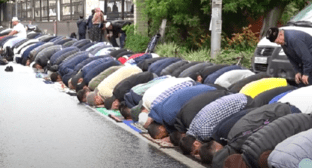
21 September 2022, 19:17
Lawyers explain procedure for mobilization in Russia
As part of the partial mobilization announced today by the President of Russia, it is planned to call on 300,000 reservists. The lawyers interviewed by the “Caucasian Knot” explain that not all citizens are subject to partial mobilization.
The “Caucasian Knot” has reported that today, Vladimir Putin has announced that he has signed the decree “On announcing partial mobilization in the Russian Federation”. The President of Russia has explained that only reserve military personnel are subject to conscription within the partial mobilization, primarily “those who served in the armed forces, have certain military specialties and relevant experience.” The heads of the regions are instructed to ensure the call-up of reserve military men for military service “in the quantity and within the time limits determined by the Ministry of Defence (MoD).”
As part of the partial mobilization, it is planned to call up 300,000 reservists, announces Russian Defence Minister Sergey Shoigu. According to him, the partial mobilization provides for the recruitment of only those who have served in the Russian army and have a military specialty.
Today, lawyer Pavel Chikov has noted that the presidential decree “gives no details of mobilization.” Firstly, mobilization orders will be handed over to reservists, the lawyer explains. “These are men who have served in the Russian army, who signed a contract to stay in the reserve. Secondly, the men who are in the reserve ... Sergey Shoigu set the bar at 300,000 people. If more fighters are needed, the decree allows the mobilization of an unlimited number of conscripts,” Pavel Chikov noted.
Not all categories of citizens are subject to partial mobilization, emphasizes Andrei Kurochkin, the deputy chair of the “Committee of Soldiers’ Mothers of Russia” for protecting the rights of conscripts.
“A man who has four children or three children and a pregnant wife for a period of at least 22 weeks is not subject to mandatory mobilization. Those who care for I Group disabled relatives, and those who are convicted of grave crimes, such as murder and so on, are also not subject to mobilization. MPs and members of the Federation Council are separately not subject to mobilization,” the “Lenta.ru” quotes today Andrei Kurochkin as saying.
This article was originally published on the Russian page of 24/7 Internet agency ‘Caucasian Knot’ on September 21, 2022 at 11:38 am MSK. To access the full text of the article, click here.
Author: The Caucasian Knot





Комментирование через Кавказский узел